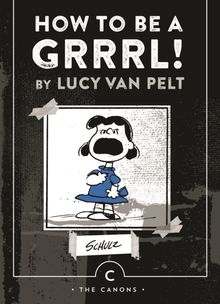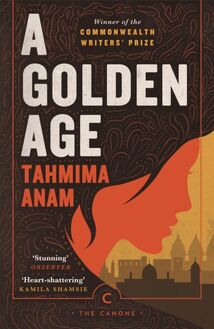Quarry Wood , livre ebook
134
pages
English
Ebooks
2010
Vous pourrez modifier la taille du texte de cet ouvrage
Obtenez un accès à la bibliothèque pour le consulter en ligne En savoir plus
Découvre YouScribe en t'inscrivant gratuitement
Découvre YouScribe en t'inscrivant gratuitement
134
pages
English
Ebooks
2010
Vous pourrez modifier la taille du texte de cet ouvrage
Obtenez un accès à la bibliothèque pour le consulter en ligne En savoir plus
Publié par
Date de parution
01 juillet 2010
Nombre de lectures
2
EAN13
9781847678010
Langue
English
Poids de l'ouvrage
2 Mo
Publié par
Date de parution
01 juillet 2010
Nombre de lectures
2
EAN13
9781847678010
Langue
English
Poids de l'ouvrage
2 Mo
Anna (Nan) Shepherd was born in 1893 and died in 1981. Closely attached to Aberdeen and her native Deeside, she graduated from her home University in 1915, and went to work for the next forty-one years as a lecturer in English at what is now Aberdeen College of Education. An enthusiastic gardener and hill walker, she made many visits to the Cairngorms with students and friends and was a keen member of the Deeside Field Club. Her last book, a non-fiction study called The Living Mountain , testifies to her love of the hills and her knowledge of them in all their moods. Her many further travels included visits to Norway, France, Italy, Greece, and South Africa, but she always returned to the house where she was raised and lived almost all her adult life, in the village of West Cults, three miles from Aberdeen on North Deeside.
Nan Shepherd wrote three novels, all well received by the critics: The Quarry Wood (1928), followed by The Weatherhouse (1930) and A Pass in the Grampians (1933). A collection of poems, In the Cairngorms , appeared in 1934, and The Living Mountain was published in 1977. She edited Aberdeen University Review from 1957 to 1964, contributed to The Deeside Field , and worked on editions of poetry by two fellow North East writers, J.C. Milne and Charles Murray. She was awarded an honorary degree by Aberdeen University in 1964, and her many friends included Agnes Mure Mackenzie, Helen Cruickshank, Willa Muir, Hugh MacDiarmid, William Soutar, and Jessie Kesson.
Copyright
First published in 1928 by Constable and Co. Ltd
First published as a Canongate Classic in 1987 by Canongate Books Ltd, 14 High Street, Edinburgh, EH1 1TE
This digital edition first published in 2009 by Canongate Books
Copyright © Sheila M. Clouston, 1928 Introduction © Roderick Watson, 1987 All rights reserved
The publishers gratefully acknowledge general subsidy from the Scottish Arts Council towards the Canongate Classics series and a specific grant towards the publication of this title
British Library Cataloguing-in-Publication Data A catalogue record for this book is available on request from the British Library
ISBN 978 1 78689 162 4 eISBN 978 1 84767 801 0
canongate.co.uk
for my Mother
Contents
Introduction
1. Aunt Josephine Leggat
2. Crannochie
3. Family Affairs
4. In Which a Latin Version Is Spoilt
5. Luke Comes in
6. Expansion of the World
7. Sudnry Weathers
8. Leggat Respectability
9. Beatrice among the Pots
10. Dussie Enters on an Affair of Moment
11. The Lustre Frock
12. Torchlight
13. Crux of a Spiritual Adventure
14. Trouble for Aunt Josephine
15. Roy Rory Foubister
16. The Ironside Brand
17. Martha Flies in a Rage
18. Death of Aunt Josephine
19. The Pillars of Hercules
Glossary
Introduction
Nan Shepherd once said that she didn’t really like writing prose fiction and that she only wrote ‘when I feel that there’s something that simply must be written’. What had to be written amounted to three remarkable novels which appeared in the years between 1928 and 1933. These books, The Quarry Wood, The Weatherhouse , and A Pass in the Grampians , were published on both sides of the Atlantic to immediate critical acclaim. The Times Literary Supplement found ‘a richness of expression astonishing in a first novel’, while the New York Times Book Review commented on the ‘vivid imagery’ in her last book, ‘… sometimes as compact and condensed as poetry’. Miss Shepherd continued to write articles and poems for the rest of her long life, but these novels, produced in the five years before her fortieth birthday, mark a creative mastery which seems to have been attained, fulfilled, and then just as suddenly concluded. They have been most unfairly forgotten.
In her later years, Nan Shepherd edited the Aberdeen University Review , and I first came across her work with an essay she had written for it in 1938, on MacDiarmid’s later poetry. This piece showed a fine insight into the poet’s linguistic experiments at a time when many readers were merely puzzled or exasperated by them. It was too many years before I discovered that Nan Shepherd had also produced fiction of the first quality, or that her novels deserve a key place in that line which runs from The House with the Green Shutters to A Scots Quair and beyond.
Indeed, reading The Quarry Wood is to read what might have happened to Chris Guthrie, had she decided to go to university after all, for Martha Ironside makes the same difficult journey towards intellectual and emotional maturity at a time when such space was seldom freely given to women. An even greater gain, perhaps, is the unforced way in which Matty manages to bridge what Chris Guthrie felt to be the division between her ‘English’ and her ‘Scottish’ selves. Nan Shepherd’s achievement is to make us feel this integrity, and to attain it herself in her narrative style. Her protagonist’s home life is difficult, squalid and narrow, indeed her parents and neighbours would seem to be at home in any village between Barbie and Kinraddie. Yet Shepherd’s wry and humane vision utterly eschews sentimental naturalism, and she never once slips into Kailyard or polemical anti-Kailyard postures. This alone is a considerable feat, and, for a first novel published only two years after A Drunk Man and four years before Sunset Song , it is a creative triumph.
Nan Shepherd’s modest middle class upbringing was quite different from Martha’s home circumstances; nevertheless, like so many first books, The Quarry Wood is a ‘development novel’ clearly derived from the author’s own life experience. The village of West Cults, King’s College Library, the students’ torchlight procession, the lectures of J. Arthur Thompson on Natural History and those of Herbert Grierson on Literature (‘Professor Gregory’), all these are recognizably part of the Aberdeen scene that Shepherd knew. Indeed, ‘the Quarry Wood’ itself (now no longer there) rose towards the Black Top hill behind the houses where she lived almost all her life. In later years she was to recall its beauty on misty dawns when she used to walk through the trees to fetch milk from a nearby farm, before travelling to town and university classes each day. Yet The Quarry Wood is not a naive nor a ‘student life’ production, for it displays a striking maturity of style and insight.
Shepherd has an acute and unsentimental grasp of character and motivation witness her account of Stoddart Semple, for example, in chapter four, or her very sharp eye for the intolerable social and sexual complacencies of young men yet she never loses compassion. When such insight is matched to the reserve and dry humour of her prose, Nan Shepherd’s writing has all the grace of Chekhov, not least in its delight at how revealing the casual juxtapositions of everyday speech and action can be made to be. The most ordinary domestic events come alive under this subtle touch, made even more dynamic by a splendid ear for the vigour of common North East speech. In this respect the novelist honours the community she depicts notwithstanding the often hilarious direness which she finds there as for example in the plight of the Leggatt sisters, led by the dreadful Jeannie who learned from an early age to use religion and respectability like a two-handed engine for subduing her timorous mother and the rest of her dust-free household.
The limitations of Martha’s point of view are dealt with equally fairly. Matty is an intellectual being who has yet to find that one ‘does not learn from books alone’, and indeed for a time in the novel she remains unaware of her own emotions and her own passionate and jealous nature. She resists and resents the coarseness of home life around her and it’s coarse enough yet Shepherd’s skill lets us see that there’s more there than her protagonist has yet realized despite the scandals that are told against her. Then, too, Martha has to learn that the claims of the ideal can turn into a burden or a kind of exploitation, if they are divorced from physical expression and common life. Her own infatuation with Luke and the unfairness of his spiritualization of her, teaches Matty this.
Such wisdom is not to be found in lectures, and its spokesperson is Great Aunt Josephine, whose formidable and friendly influence opens and closes the tale. Josephine possesses ‘the same sure capable grasp of life’ that Matty finds in one of her most gifted professors, and that she herself will eventually inherit. Thus it is Josephine who will restore to Matty what is best in her roots, without denying the possibilities of a wider intellectual life beyond them. Paradoxically, perhaps, she does this by the manner of her death, which is where the novel ends.
In re-reading The Quarry Wood it becomes clear that an apparently episodic unfolding has been rather carefully controlled from the start, for its delightful opening paragraph has given us what amounts to a summary of the book’s central theme and evolution. When Josephine Leggatt dies, ‘aged seventy-nine and reluctant’, it is after an agonizing and extended struggle against cancer, a grim vigil which Matty (and the reader with her) has assumed responsibility for and has had to undergo. It is a harrowing sequence, and yet Josephine’s end comes as a triumph of affirmation, linked as it is to the turning of the seasons, and to the evocation of the dour and delicate moods of the weather at which Nan Shepherd particularly excels. There is no melodramatic heightening here, such as the Gothic crescendo which makes a ‘clean sweep o the Gourlays’ at the end of George Douglas Brown’s novel; nor does the narrative conclude with the sweet fatalism of Chris’s ebbing away at the end of Grey Granite . Nan Shepherd’s vision is not without its own wry ironies, but she speaks positively and wholly on behalf of life. Like Josephine Legatt, she has an eye that sees everything, ‘a serene unclouded eye’, but ‘an eye, moreover, that never saw too mu














